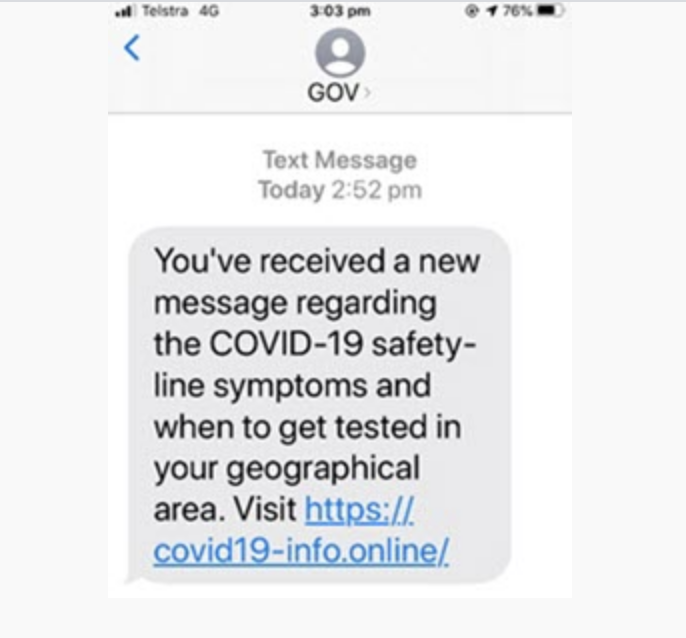Scammers are using the spread of COVID-19 (coronavirus) to take advantage of people across Australia.
The ACCC Scamwatch website has received over 2000 coronavirus-related scam reports since the beginning of the coronavirus outbreak in Australia. Unfortunately, over $700,000 has been reported as lost to scammer since the outbreak began. Common scams include phishing for personal information, online shopping, and superannuation scams.
If you have been scammed or have seen a scam, you can make a report on the Scamwatch website, and find more information about where to get help.
Please remember to be cautious and remain alert to coronavirus-related scams. Scammers are very good at preying on people during times of unrest and uncertainty. Never provide your personal, banking or superannuation details to strangers who have approached you.
Scammers may pretend to have a connection with you such as from a trusted source like the government or a banking institution. It’s important to stop and check, even when you are approached by what you think is a trusted organisation.
Visit the Scamwatch news webpage for general warnings and media releases on COVID-19 scams.
We have gathered some common examples of what to look for, but please be aware, these are just common examples. There are many more out there. If you are at all in doubt it is important to pay attention. If something seems strange to you, don’t click on any links and never provide personal information.
Phishing – Government impersonation scams
Scammers are pretending to be government agencies providing information on COVID-19 through text messages and emails ‘phishing’ for your information. These contain malicious links and attachments designed to steal your personal and financial information.
There are reports of text messages being sent that appear to come from ‘GOV’ and ‘myGov’, with a malicious link to more information on COVID-19. Please check that
Tips to protect yourself from these types of scams:
- Don’t click on hyperlinks in text/social media messages or emails, even if it appears to come from a trusted source.
- Go directly to the website through your browser. For example, to reach the MyGov website type ‘my.gov.au’ into your browser yourself.
- Never respond to unsolicited messages and calls that ask for personal or financial details, even if they claim to be a from a reputable organisation or government authority — just press delete or hang up.
Phishing – Other impersonation scams
Scammers are pretending to be from real and well-known businesses such as banks, travel agents, insurance providers and telco companies, and using various excuses around COVID-19 to:
- ask for your personal and financial information
- lure you into opening malicious links or attachments
- gain remote access to your computer
- seek payment for a fake service or something you did not purchase.
Superannuation scams
Scammers are taking advantage of people in financial hardship due to COVID-19 by attempting to steal their superannuation or by offering unnecessary services and charging a fee.
Most of these scams start with an unexpected call claiming to be from a superannuation or financial service. The scammers use a variety of excuses to request information about your superannuation accounts, including:
- offering to help you access the money in your superannuation
- ensuring you’re not locked out of your account under new rules.
- checking whether your superannuation account is eligible for various benefits or deals.
Tips to protect yourself from these types of scams:
- Never give any information about your superannuation to someone who has contacted you — this includes offers to help you access your superannuation early under the government’s new arrangements.
- Hang up and verify their identity by calling the relevant organisation directly — find them through an independent source such as a phone book, past bill or online search.
- See this Scamwatch media release warning about superannuation scams.
- For more information on superannuation, scams visit ASIC’s MoneySmart website.
It is important to remember there are many different types of scams out there. So be mindful every time you receive something the looks off or strange. Visit the Scamwatch site to see a full list of examples or to report suspicious activities.
The scam activity is set to continue as the pandemic crisis continues, please always err on the side of caution or if you have questions please don’t hesitate to get in touch with us. We are always happy to help.



